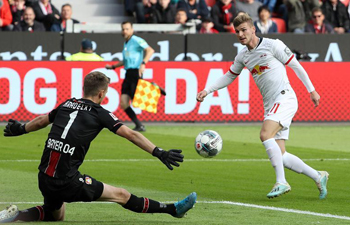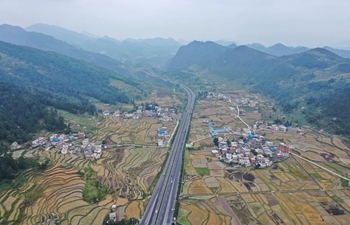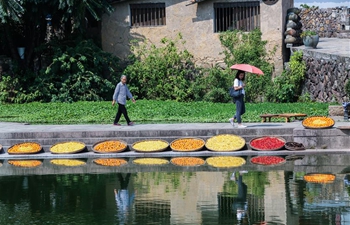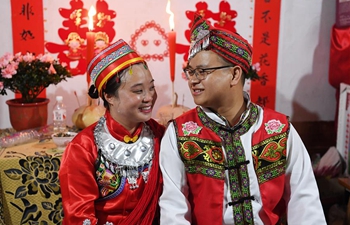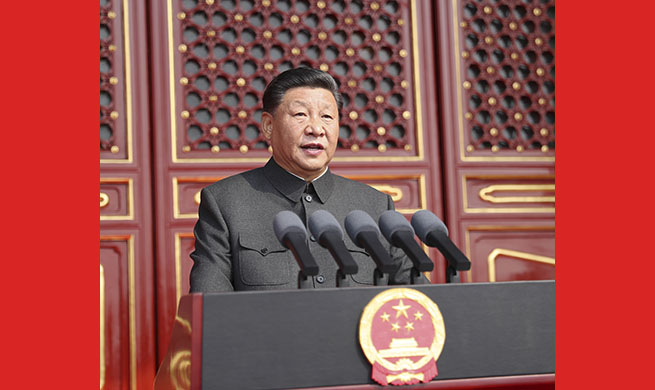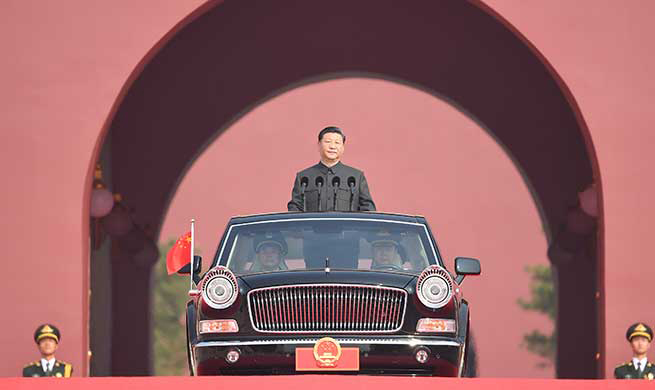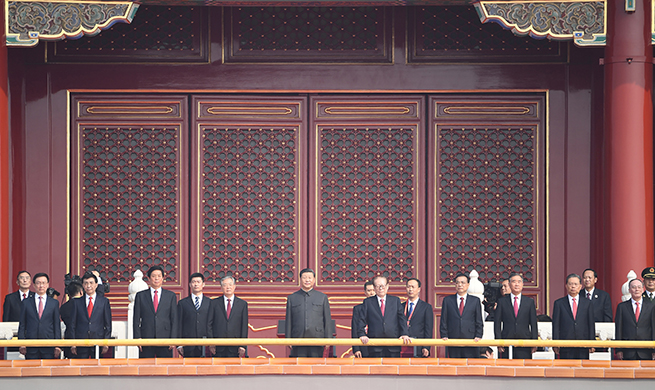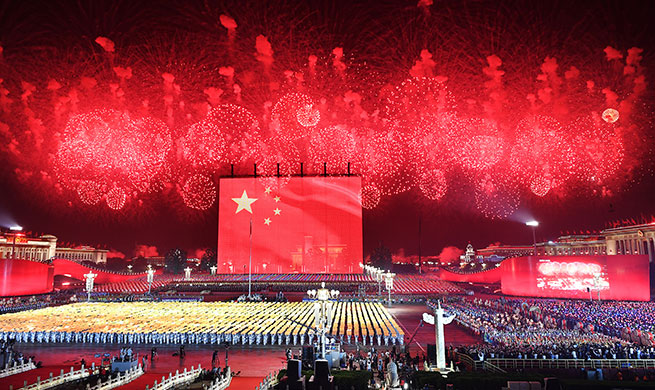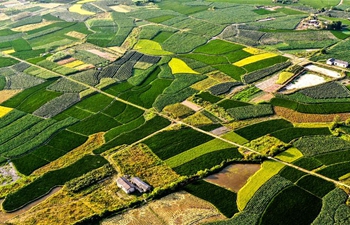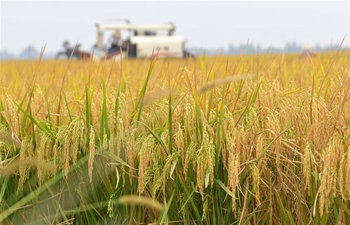by Jamal Hashim
BAGHDAD, Oct. 6 (Xinhua) -- The latest demonstrations that stormed the Iraqi streets in central and southern Iraq have posed serious challenge to the government of Prime Minister Adel Abdul Mahdi.
The demonstrations erupted on Tuesday when thousands of angry demonstrators took to the streets in Baghdad and other Iraqi cities to protest against increasing unemployment, government corruption and lack of basic services.
The protests turned violent and spread to other Iraqi provinces when hundreds of protesters attacked and burned several provincial government buildings and offices of leading political parties.
On Oct. 4, Abdul Mahdi delivered a televised speech saying that after years of sectarian strife and war against Islamic State (IS) group, the Iraqi government has no "magic" solutions to infrastructure reconstruction and high rate unemployment.
He urged the demonstrators to remain calm, abide by the law, and promised to implement reforms, including measures to increase job opportunities for college graduates.
At dawn on Oct. 5, Abdul Mahdi lifted the curfew imposed on Baghdad since Oct. 3, and the city's traffic was restored, but security measures were intensified and the Iraqi anti-riot forces were deployed across the city, waiting for hundreds of demonstrators who continued their rallies but failed to form huge demonstrations after clashes with the security forces.
Abdul Mahdi's speech and security measures had no strong effect on the ground as the protests continued and so far left some 100 people killed and 4,000 others wounded.
The spokesman of the UN Secretary-General Antonio Guterres issued a statement saying that secretary-general is "deeply saddened by the loss of life during the recent protests and appeals to all actors to exercise utmost restraint and refrain from violence."
Iraqi political experts see that the protest seems not linked to political groups.
"This is a revolution of hunger and national anger, and so far it seems that the protests are not fomented by any party, and its primary goal is job opportunities and services. Those young men have no hope for better future and they have nothing to lose," Ali al-Musa, a political analyst, told Xinhua.
However, al-Musa said that if it is proved later that there is a militia, political party or foreign state behind the protests, the situation is likely to be worse.
The heavy casualties among protesters pushed the Shiite cleric Moqtada al-Sadr to call on Abdul Mahdi to resign.
"I demand that the Iraqi government fully resign and start early elections under the supervision of the United Nations," al-Sadr said.
"What is happening now is a disregard for Iraqi blood that cannot be tolerated," said al-Sadr, whose call was supported by former prime minister Haider al-Abadi and former vice president Osama al-Nujaifi.
"Al-Sadr's move obviously was aimed at intensifying pressures on Abdul Mahdi, who can not bring about tangible reforms that would satisfy the protesters due to the complicated political balances among the conflicting political parties," al-Musa said.
Al-Musa concluded that "there is a desire by some political parties to present the government headed by Adel Abdul Mahdi to be the scapegoat to ease tensions after the heavy casualties among the demonstrators, as the political blocs have legal power to overthrow the government."
However, it is hard to replace Abdul Mahdi because the political process is influenced internally by leading parties, and externally by regional and international countries, said al-Musa, referring to Iran and the United States respectively.
Moreover, Nadhim al-Jubouri, another political analyst from Salahudin province told Xinhua that even if Abdul Mahdi is to be replaced, his successive premier will not be able to come up with needed and tangible reforms because the political process is built on ethno-sectarian power-sharing that would make the decision-making difficult among the fragmented political blocs.
According to al-Jubouri, most of the political parties in the country have their own militias, and gained their own influence and power through years of bloody sectarian turf war across the country.
As for the future of the protests in Iraq, al-Jubouri said maybe the authorities will manage to curb or stop the demonstrations, but they will not be able to extinguish the fire of anger that may explode later at any moment.






